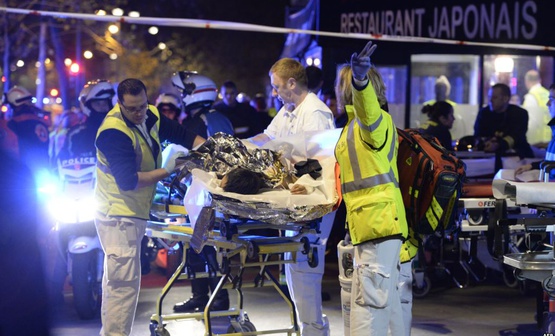The decision by the Ukrainian parliament to designate Euro-Atlantic integration as one of the main foreign policy priorities for the country has generated understandable enthusiasm among those citizens who hope that sooner or later Ukraine will become a NATO member. However, in reality, there is still a long path before Ukraine joins NATO -- and each step will have to be taken with great effort. This pertains not only to reforms and not only to diplomatic efforts. It is Ukrainian society that will need to do the main work to correct past errors.
First, Ukrainian citizens will need to understand that NATO is not simply a security "umbrella." It is first of all solidarity and mutual aid. Ukrainian politicians are finding themselves in unfamiliar territory now where the majority of citizens support the country's accession to NATO. However, this majority has appeared only after Russia's invasion of Crimea and the Donbas, after it became clear that if Ukraine had been in NATO this attack would not have happened and the territorial integrity of the country would have been preserved.
However, if we had been in NATO, there is much else that would not have occurred either. First of all, Yanukovych. The Kharkiv agreements (controversial deal signed by Yanukovych that extended Russia's lease on Russia's naval base in Sevastopol in exchange for a 30% cut in the price of Russian natural gas sold to Ukraine --Ed.). The Russian base in Crimea. That would have required a completely different society, free of Soviet stereotypes. Such societies existed at the time of the collapse of the Soviet Union in the Soviet-occupied "Soviet Baltic republics" -- in other words, the Baltic countries. As a result, these countries began to move rapidly towards the civilized world and joined NATO. And in Ukraine a Soviet population continued to live that remained in the information field of neighboring Russia.
The victims of Maidan and the Donbas war have given Ukrainians a chance
In 1994, the majority of Ukrainian citizens elected the former "red director" Leonid Kuchma the new president of the country, who did not conceal his desire to restore economic and political ties with Moscow. The majority of Kuchma voters still do not realize that through their vote at that time they signed Ukraine's death warrant and removed the future for themselves and their children. And it is already impossible to correct the consequences of that vote and the subsequent votes. The discussion today is rather about the future of the grandchildren of those who had voted for Kuchma and who rejoiced in the cheap Russian gas, who sympathized with Yugoslavia when NATO attempted to stop the ethnic cleansing of Kosovo Albanians, who believed in the possibility of maneuvering between the civilized world and the Kremlin.
Even when Kuchma decided 20 years ago to sign the Charter on a Distinctive Partnership between Ukraine and NATO -- despite Russian resistance and the Kremlin's opposition to NATO enlargement, still under Yeltsin and not Putin -- this step was not viewed by society as a call to action. It did not generate a strong Euro-Atlantic movement nor societal support. Ukrainians routinely continued to search for those who would pay their salaries and pensions, but did not change anything in their everyday life. In fact, many continue to live in this paradigm even today. We cannot correct the errors of these people -- the Ukrainian society of recent decades. However, the 2014 Maidan and its victims, as well as the victims of the war in the Donbas, have given Ukrainians a chance to secure the future for their descendants. The Euro-Atlantic integration represents one of these paths.



